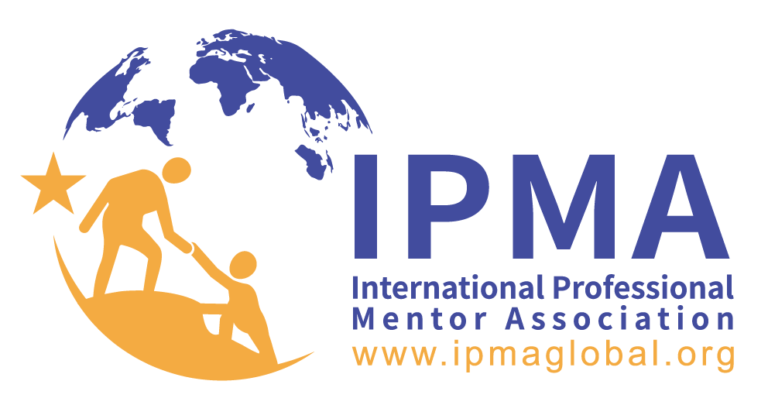Why K-12 School Needs Accreditation?

1. Improve Student Guidance & Support
IPMA certification ensures that K-12 school mentors are equipped to provide high-quality guidance and support to students, promoting their overall development and well-being.
2. Enhance Teacher Professionalism & Development
IPMA certification promotes the professional development of teachers, enabling them to provide more effective and innovative teaching methods.
3. Align with Educational Standards & Policies
IPMA certification demonstrates compliance with local and international educational standards and policies, ensuring the school meets the necessary requirements for quality education.
4. Enhance Parental Trust & Involvement
Certification builds trust between schools and parents, fostering a collaborative approach to student education and development.
5. Promote International Exchange & Cultural Awareness
Certified mentors can facilitate international exchanges and cultural awareness programs, broadening students' horizons and preparing them for a globalized world.
6. Improve Student Outcomes & Future Prospects
By investing in mentor certification, K-12 schools can improve student outcomes, increasing their chances of success in future educational and career endeavors.

Would like to get accreditaion personally to enhance your career as a Educater?
K-12 School Mentoring Program Guide

- Identify Needs: Assess the specific needs of your student population, such as academic support, social skills development, or college readiness.
- Set Clear Goals: Establish measurable objectives that align with your school’s mission and vision, such as improving reading scores, increasing graduation rates, or promoting positive mental health.
- Mentor Recruitment: Identify potential mentors within the school community, including teachers, staff, older students, and community volunteers.
- Training and Preparation: Provide comprehensive training on mentoring techniques, child development, confidentiality, and crisis intervention.
- Matching Process: Develop a thoughtful matching process that considers factors such as age, grade level, interests, and the specific needs of the mentee.
- Set Expectations: Clearly communicate the roles and responsibilities of mentors and mentees, and establish guidelines for regular meetings and communication.
- Program Format: Decide on the format of the mentoring relationship, such as one-on-one mentoring, group mentoring, or peer mentoring.
- Activity Planning: Develop a calendar of activities and discussions that align with the program’s goals, such as academic tutoring, career exploration, or social skills workshops.
- Materials and Tools: Equip mentors with the necessary resources, such as lesson plans, activity guides, and mentoring manuals.
- Ongoing Support: Offer ongoing support and supervision for mentors, including regular check-ins, professional development opportunities, and access to a mentor coordinator.
- Data Collection: Implement a system for tracking the progress of mentor-mentee relationships, such as through surveys, checklists, or progress reports.
- Assessment and Feedback: Regularly assess the effectiveness of the program and solicit feedback from mentors, mentees, and other stakeholders to make necessary adjustments.
- Recognition and Celebration: Recognize and celebrate the achievements of mentors and mentees through awards, certificates, or public acknowledgment.
- Parental Involvement: Engage parents and families in the mentoring program by sharing program updates, involving them in events, and seeking their feedback.
- Safety Protocols: Establish clear safety protocols and guidelines for mentors and mentees, including reporting procedures for any concerns or issues.
- Confidentiality Agreements: Ensure that all mentors understand and adhere to confidentiality agreements to protect the privacy of mentees.
- Long-Term Planning: Develop a long-term plan for sustaining the mentoring program, including strategies for funding, staffing, and mentor recruitment.
- Alumni Involvement: Encourage former mentees to become mentors or volunteers, creating a continuous cycle of support and mentorship within the school community.
- Stay Informed: Keep abreast of best practices and emerging trends in K-12 mentoring.
- Flexible Programming: Be prepared to adapt the program based on feedback, changing student needs, and new research.
Accreditation Standards
There are quite a few benefits for organizations to get accredited in Professional Mentoring:
FAQs
1. What age-appropriate mentoring practices does IPMA recommend for K-12 schools seeking accreditation?
IPMA recommends several age-appropriate mentoring practices for K-12 schools, focusing on the development of students from kindergarten through grade 12. These practices include:
- Building Strong Relationships: Emphasizing the importance of developing personal and trusting relationships between mentors and students
- Tailored Support: Providing mentorship that is sensitive to the developmental stages of students, with different approaches for younger children and adolescents
- Incorporating Core Competencies: Ensuring that mentors are trained in the 9 Core Competencies for Professional Mentors, which guide effective mentoring practices
- Safe and Supportive Environment: Creating a safe and supportive environment that fosters student well-being and academic success
2. How does IPMA's accreditation process ensure that K-12 mentoring programs align with educational standards and objectives?
IPMA's accreditation process ensures alignment with educational standards and objectives through:
- Comprehensive Evaluation: Assessing the mentoring programs against global standards to ensure they meet high-quality criteria
- Focus on Outcomes: Ensuring that mentoring programs have clear objectives and measurable outcomes that contribute to student development
- Continuous Improvement: Requiring schools to demonstrate ongoing efforts to improve their mentoring programs based on feedback and best practices
- Adherence to Code of Ethics: Ensuring that mentors and programs adhere to the IPMA Code of Ethics and Conducts, which promotes integrity and professionalism
3. Can K-12 schools with limited resources still apply for and achieve IPMA accreditation?
Yes, K-12 schools with limited resources can still apply for IPMA accreditation. IPMA offers flexible pathways to accreditation, including:
- Resource-Sensitive Criteria: Recognizing that schools may have varying levels of resources, IPMA provides accreditation criteria that can be adapted to different contexts
- Support and Guidance: Offering support and guidance to help schools navigate the accreditation process and implement effective mentoring practices
- Partnerships and Collaboration: Encouraging schools to leverage community partnerships and external resources to enhance their mentoring programs
4. What kind of training or professional development opportunities does IPMA offer to mentors in K-12 accredited schools?
IPMA offers several training and professional development opportunities for mentors in K-12 accredited schools, including:
- Core Competency Training: Providing training programs focused on the 9 Core Competencies for Professional Mentors to ensure mentors are equipped with essential skills
- Ongoing Professional Development: Offering continuous learning opportunities through workshops, webinars, and online courses to help mentors stay updated with best practices
- Access to Resources: Providing access to a range of resources, including mentorship guides, research papers, and case studies to support mentor development
5. How can K-12 schools showcase their IPMA accreditation to parents, students, and the community?
K-12 schools can showcase their IPMA accreditation through various means:
- Public Announcements: Sharing the accreditation news through school newsletters, websites, and social media to inform parents and the community
- Certification Display: Displaying the IPMA accreditation certificate prominently in school offices or on the school website
- Parent and Community Engagement: Hosting events or informational sessions to explain the benefits of the accreditation and how it enhances student support
- Student Recognition: Highlighting the accreditation as part of the school's commitment to quality education and student development
